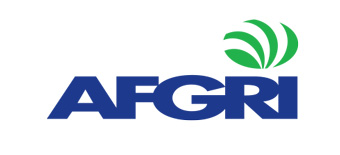Access to finance, training and entrepreneurship critical to building SA’s black farming community
Centurion, 15 April 2019 – This is according to AFGRI’s recently-renamed Lemang Agricultural Services, created specifically to train, develop and mentor new era farmers, and focused on the further development of commercial black farmers in South Africa, particularly large farmers ready to take the final steps towards becoming full-scale commercial farmers. This includes offering financial assistance, thus helping them to flourish in a sustainable manner.
“With food security becoming an increasing concern for South Africa and the rest of the continent, it’s important that agribusinesses such as AFGRI get behind our farmers, particularly black farmers wanting to take the next step into full commercialisation. And with agriculture being the key driver of food security, AFGRI is fully supportive of bringing a new generation of successful farmers into production to ensure the sector continues to thrive,” says Marion Shikwinya, who heads up Lemang Agricultural Services.
“We are very excited about the opportunities that agriculture offers, but there is a need to recognise the constraints that many new era farmers face. The first of these is the lack of access to affordable credit. Many are not able to access credit facilities to finance their operations, including state-of-the-art equipment and other new technologies required to increase production, and produce high-quality crops or livestock.”
Shikwinya adds that AFGRI – a leading agricultural services company with core competencies to enhance, support and guide the growth of agricultural enterprises – has a wide range of financial services that they are looking at adapting to support new era farmers.
Lemang itself has an enviable track record of success in assisting new era farmers, having trained and supported over 650 farmers in the past four years (in its previous capacity as Harvest Time Investments), resulting in over 18,400 hectares being planted, some 660 permanent jobs being created, and a total yield of 49,873 tonnes. On average, farm income has tripled in cases where Lemang has supported the farmer.
According to Operations Manager, Bankies Malan, the team can bring this track record to bear on assisting farmers overcome another stumbling block, which is the lack of access to information and training.
“Training – and access to the right information – is vital for farmers to succeed. Agribusinesses such as ours have huge role to play in ensuring our farmers are not only trained in the latest farming techniques but are also mentored and given relevant business skills. Knowing how to run a business is integral to growing a successful farming enterprise.”
Malan says that while many systems put in place to help black farmers have failed due to a lack of funding or skills, particularly in rural areas, farmers should also think more innovatively, and not simply wait for assistance.
An easy solution he believes could work is for smaller new era farmers in rural areas to form “study groups”, allowing them to learn from external experts, who could be invited to attend the sessions, and from one another, a major source of knowledge-sharing, at the same time.
However, critical to this kind of out-the-box thinking is a true desire to succeed as a farmer. “It takes real entrepreneurial spirit to set up this kind of initiative, but the benefits are huge, with farmers being able to tap into relevant knowledge when they need it, which will in turn inspire a spirit of independency and drive sustainable success.”
In fact, says Malan, entrepreneurial drive and a true passion for farming are foremost on the list of criteria for qualifying for the Lemang New Era Farmer Development Programme.
He adds that communication also has a role to play connecting farmers with one another and to support systems. “Modern mobile technology makes it so much easier to get farmers around the table to learn from one another and from others. In fact, it’s essential that we all capitalise on this technology, and explore better ways of connecting as a farming community.”
Malan believes that if such ecosystems are established and are fully connected – to each farmer in a specific area through the study groups, as well as to other groups around the country using affordable and readily-available mobile technology – this scenario could give rise to mega farming communities across South Africa.
“Imagine the power this will give new era farmers. With access to the right information when they need it, as well as access to training, mentoring and funding through companies like ours, they could be easily be fully integrated into the agricultural value chain.”
Until such time, though, Shikwinya and the team at Lemang Agricultural Services, are hard at work, spreading the word about their offerings and hoping to reach as many new era farmers as possible.

